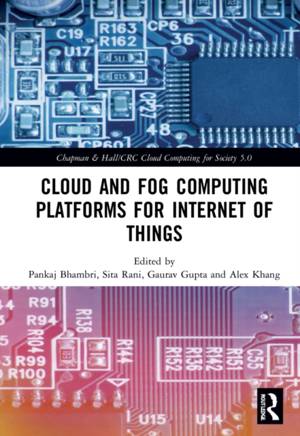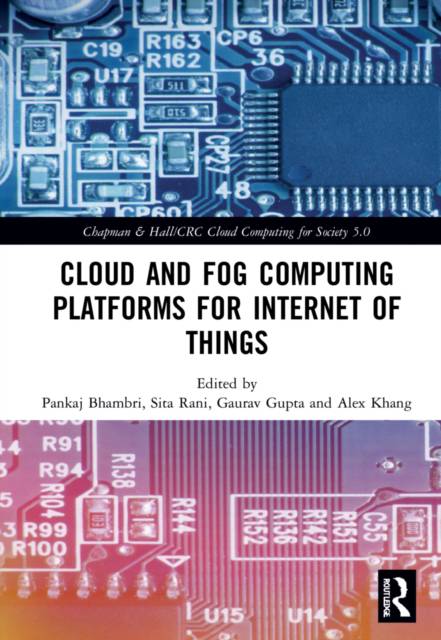
- Retrait gratuit dans votre magasin Club
- 7.000.000 titres dans notre catalogue
- Payer en toute sécurité
- Toujours un magasin près de chez vous
- Retrait gratuit dans votre magasin Club
- 7.000.000 titres dans notre catalogue
- Payer en toute sécurité
- Toujours un magasin près de chez vous
Cloud and Fog Computing Platforms for Internet of Things
Description
Today, relevant data are typically delivered to cloud-based servers for storing and analysis in order to extract key features and enable enhanced applications beyond the basic transmission of raw data and to realize the possibilities associated with the impending Internet of Things (IoT). To allow for quicker, more efficient, and expanded privacy-preserving services, a new trend called Fog Computing has emerged: moving these responsibilities to the network's edge.
Traditional centralized cloud computing paradigms confront new problems posed by IoT application growth, including high latency, limited storage, and outages due to a lack of available resources. Fog Computing puts the cloud and IoT devices closer together to address these issues. Instead of sending IoT data to the cloud, the fog processes and stores it locally at IoT devices. Unlike the cloud, fog-based services have a faster reaction time and better quality overall.
Fog Computing, Cloud Computing, and their connectivity with the IoT are discussed in this book, with an emphasis on the advantages and implementation issues. It also explores the various architectures and appropriate IoT applications. Fog Computing, Cloud Computing, and Internet of Things are being suggested as potential research directions.
Features:
- A systematic overview of the state-of-the-art in Cloud Computing, Fog Computing, and Internet of Things
- Recent research results and some pointers to future advancements in architectures and methodologies
- Detailed examples from clinical studies using several different data sets
Spécifications
Parties prenantes
- Editeur:
Contenu
- Nombre de pages :
- 198
- Langue:
- Anglais
- Collection :
Caractéristiques
- EAN:
- 9781032101507
- Date de parution :
- 08-06-22
- Format:
- Livre relié
- Format numérique:
- Genaaid
- Dimensions :
- 178 mm x 254 mm
- Poids :
- 585 g






